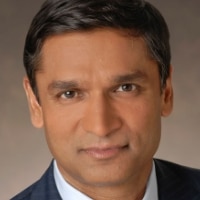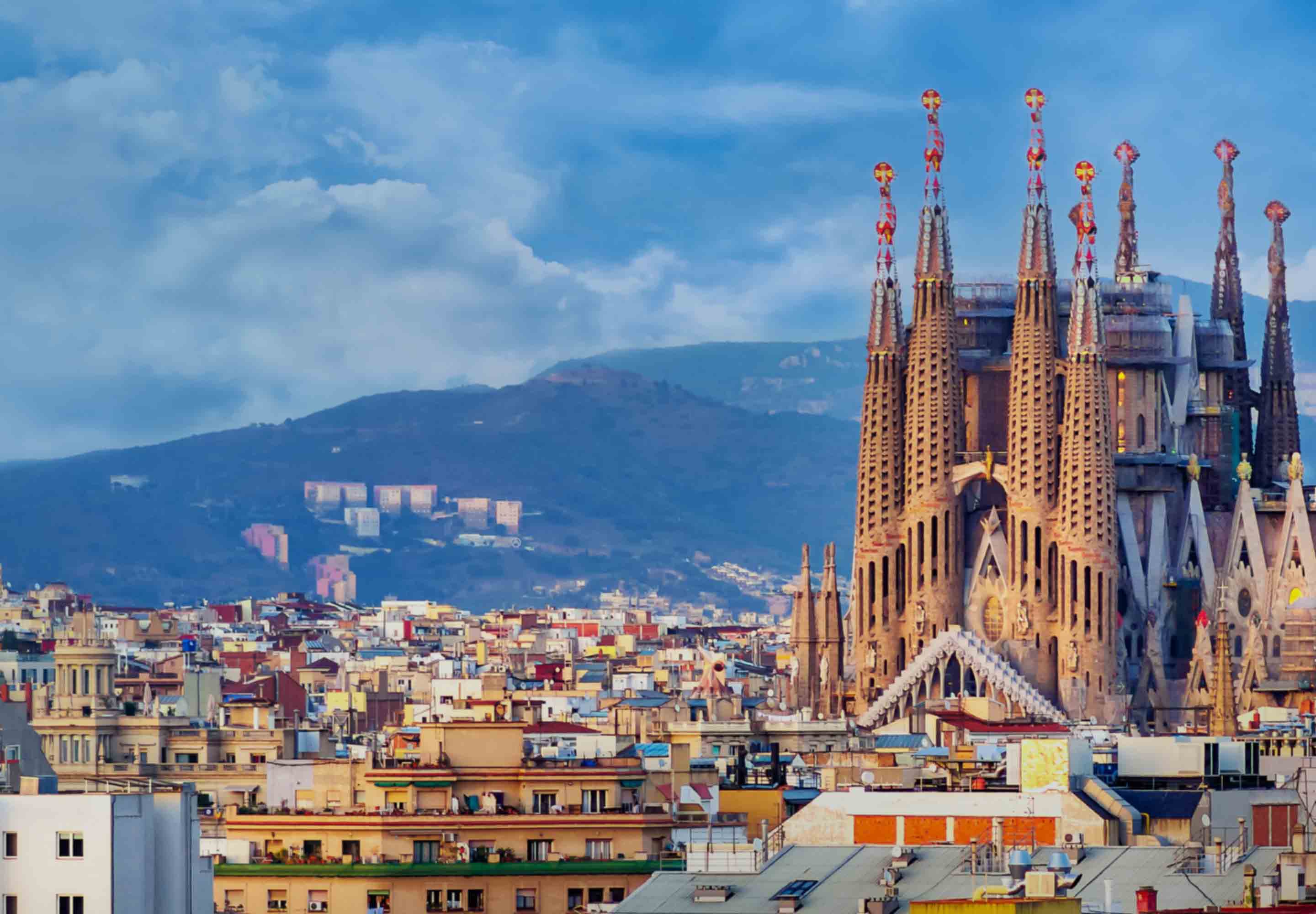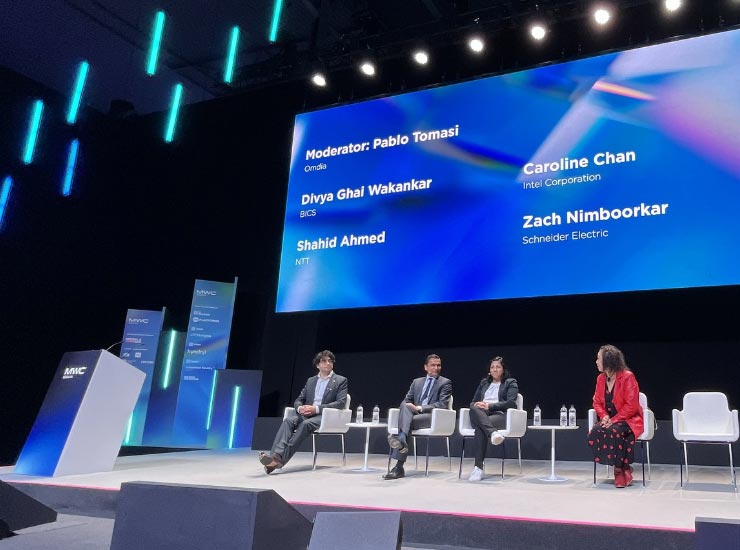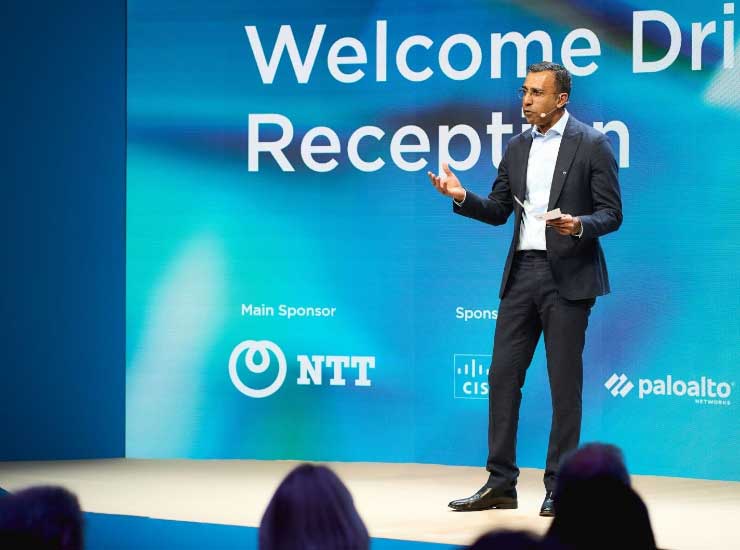-
Featured services
Think beyond the robots
The successful integration of AI and IoT in manufacturing will depend on effective change management, upskilling and rethinking business models.
Read the blog -
Services
View all services and productsLeverage our capabilities to accelerate your business transformation.
-
Services
Network Services
-
Services
Cloud
-
Services
Consulting
-
-
Services
Data and Artificial Intelligence
- AI and Intelligent Solutions
- Data/AI Strategy and Program
- Data Engineering and Platforms
- Data Governance and Management
- Data Visualization and Business Decision
- GenAI Consulting
- GenAI Platforms
- GenAI Industry Services
- GenAI Infrastructure Services
- GenAI Value Transformation
- View Data and Artificial Intelligence
-
Services
Technology Solutions
-
Services
Global Data Centers
-
Services
CX and Digital Products
-
Services
Application Services
-
Services
Sustainability Services
-
Services
Digital Workplace
-
Services
Business Process Services
-
Services
Generative AI
-
Services
Cybersecurity
-
Services
Enterprise Application Platforms

Accelerate outcomes with agentic AI
Optimize workflows and get results with NTT DATA's Smart AI AgentTM Ecosystem
Create your roadmap -
-
-
Insights
Recent Insights
-
The Future of Networking in 2025 and Beyond
-
Using the cloud to cut costs needs the right approach
When organizations focus on transformation, a move to the cloud can deliver cost savings – but they often need expert advice to help them along their journey
-
Make zero trust security work for your organization
Make zero trust security work for your organization across hybrid work environments.
-
-

Master your GenAI destiny
We’ll help you navigate the complexities and opportunities of GenAI.
Explore GenAI -
-
Master your GenAI destiny
We’ll help you navigate the complexities and opportunities of GenAI.
Explore GenAI -
Discover how we accelerate your business transformation
-
About us
CLIENT STORIES
-
Liantis
Over time, Liantis – an established HR company in Belgium – had built up data islands and isolated solutions as part of their legacy system.
-
Randstad
We ensured that Randstad’s migration to Genesys Cloud CX had no impact on availability, ensuring an exceptional user experience for clients and talent.
-
-
CLIENT STORIES
-
Liantis
Over time, Liantis – an established HR company in Belgium – had built up data islands and isolated solutions as part of their legacy system.
-
Randstad
We ensured that Randstad’s migration to Genesys Cloud CX had no impact on availability, ensuring an exceptional user experience for clients and talent.
-

Everest Group PEAK Matrix® Assessment
NTT DATA is a Leader and Star Performer in the Everest Group Sustainability Enablement Technology Services PEAK Matrix® Assessment 2024.
Get the Everest report -
- Careers
Topics in this article
Fifty years ago, on 3 April 1973, US engineer Martin Cooper made the world’s first cellphone call with a Motorola prototype.
So it seems fitting that Marty, now 94, received a lifetime achievement award at this year’s Mobile World Congress (MWC) in Barcelona: his invention changed our world dramatically, and now AI is on the brink of doing the same.
I was inspired by the many developments around AI, including generative AI and artificial general intelligence (AGI) – also known as “Super AI” – that can seemingly do many things but, critically, serves as the nervous system for autonomous vehicles.
But AI was just one of the hot topics at this year’s MWC, which drew more than 88,500 people from 202 countries for four days of events, exhibitions and debates.
Our NTT meeting rooms were fully booked, and we were in our element talking about smart factories, digital twins and other exciting developments in our industry. We also demonstrated use cases for private 5G technology and edge as a service. One of the event highlights for us was that event-goers got to see our global vision of One NTT in action, as we were joined by teams from NTT DATA and Japan’s NTT Docomo.
Shahid Ahmed on stage during an MWC panel discussion
Five major trends at MWC
- Private 5G (especially for enterprises)
I might sound biased, considering our own Private 5G offering, but private 5G truly was a key theme at this year’s MWC, along with private networks. Because many carriers have not been able to monetize 5G on the consumer side, even in the US and Europe, the focus is now very much on the business side – so, 5G for enterprises.
China is seeing massive growth in private 5G wireless networks. Even just the operator revenue was north of a billion dollars for 2022. There were also discussions about opening up new spectrum for industrial use in different countries.
- Fair share (who’s paying?)
Telcos are building big pipes and investing heavily in building 5G-enabled networks. And while the world’s huge streaming companies and other over-the-top (OTT) players are taking advantage of this development, the value isn’t coming back to the carriers. So there is a debate about content and application providers paying for these investments in upgrading carrier networks.
However, Netflix and other OTT players argue that they invest heavily in cloud and content, and operators are reaping benefits from this. Unfortunately, MWC became a hotbed of complaints for the telcos – and that’s the wrong posture to adopt, because it’s a place for innovation and building the future. For those that are struggling, this is the best time to invest, innovate and reinvent your business model.
- AI … everywhere
Despite recessionary fears and economic headwinds, everybody was talking about AI. It's top of mind – both in terms of deploying AI in organizations more broadly and in how it can be used in wireless and 5G networks. The discussion is about finding and exploring the intersection of 5G and AI. There was also a lot of focus on automation using AI.
I was most excited about the launch of OpenAI and the release of the GPT-3 application programming interface (API) that will unleash all kinds of new AI-driven apps. (A hot tip for the telcos: maybe that’s where you’ll find your killer app?)
- ALSO READ → How AI keeps the wolves at bay in cybersecurity
- Devices – the key to value
I saw many new devicemakers attending MWC. That's good news for everyone in our industry, because it's hard to get value out of a 5G network without devices. It’s like having a state-of-the-art highway without cars. You won’t get value out of the highway.
- Collaboration among industry players
There was plenty of talk about collaboration leading to new ways of doing things in our overall ecosystem. A rising tide lifts all boats, after all. I enjoyed seeing the likes of Cisco, Nokia, Microsoft and Intel all in the same place, collaborating and trying to solve challenges for the industry and consumers alike.
The GSM Association, which represents the mobile network operator industry, along with a number of operators launched a new API initiative to help monetize the network – but is it new? In 2013, a similar initiative was launched by telcos to open up their networks. Déjà vu!
A new 5G partnership
Looking at my list of trends, it’s clear to me that MWC was a vote of confidence in our strategic direction at NTT – especially when it comes to 5G and the ways in which organizations are collaborating.
We’ve already built a rich ecosystem of partners in our various business areas such as Network as a Service and Multicloud as a Service.
One of our partners – for the past 30 years already – is Cisco, and we announced at MWC that we will now also work with them to drive the adoption of private 5G in the automotive, logistics, manufacturing, retail and public sectors. We’ll jointly bring to market the technology and managed services needed to enable critical Industry 4.0 capabilities, including automated guided vehicles and computer vision.
This initiative is also linked to our MWC status as Industry City Manufacturing Lead Sponsor. Many organizations from the industrial sector attended this part of the conference – for example, , with whom I did a fireside chat on edge and cloud computing in manufacturing, and Airbus – alongside network operators, carriers and devicemakers. Through our sponsorship, we could really engage with these organizations and show them the value we can deliver.
Abhijit Dubey, Global CEO of NTT, welcoming event-goers to MWC Barcelona
A time for optimism and cooperation
MWC is clearly becoming a broader conference about technology. It's no longer just for telecommunication organizations.
And, just as the event itself has become more inclusive, I left MWC feeling optimistic about the way organizations have started collaborating with each other more broadly as we emerge from the COVID-19 pandemic.
A mood of partnership and cooperation pervaded the MWC events and all our client meetings that took place there – and we shouldn’t break this momentum just because the conference is over. This is the time for us to create new opportunities and pipelines so we can make a real difference in the world.



